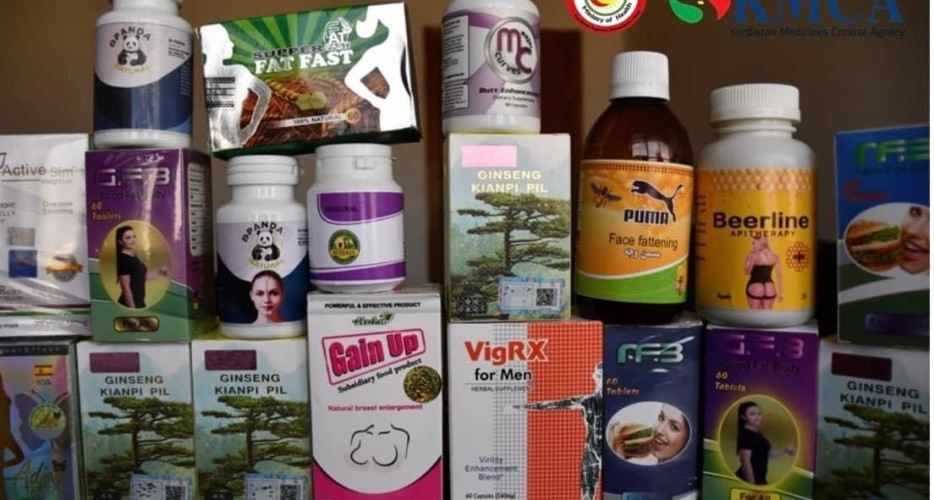
Peregraf- Ghamgin Mohammed
For the past year, Bahar Abdullah has been seeing a specialist after taking a fake drug which she bought online and suffering medical problems as a result.
It was advertised online as a breast enlargement treatment. Abdullah, 21, was impressed by all the positive comments she saw on social media praising the drug, so she decided to try it. One day, the pills arrived in a bottle with a Chinese-language label.
“I wanted to enlarge my breasts, but it caused me a lot of problems. I grew hair all over my body,” Abdullah told Peregraf.
“I don't know if those reviews online were true or fake,” she admitted, but warned others not to make the same mistake of ordering drugs off of the internet.
However, this is all too common in the Kurdistan Region, according to an investigation by Peregraf. Many drugs are sold without scientific or medical information, often as a way to lose weight, enhance a body part, cure impotence, or dozens of other ailments where people are looking for a quick fix.
In response, the Kurdistan Regional Government’s (KRG) Ministry of Health has issued an official warning that all medicines must be sold by a licensed pharmacy, but people are able to access illegal pharmaceuticals anyway.
Dr. Havel Azad, head of the joint health committee in Sulaimaniyah governor's office, told Peregraf that “most of the drugs sold online are unknown.”
“No one knows what they are made of and others have expired and changed their labels. They do not pass though controls and are smuggled,” Azad added.
Drug control officers in the Kurdistan Region use sting operations to crack down on smugglers. They pose as buyers to buy fake drugs and then arrest drivers and suppliers when the product is delivered.
Govand Rawand, head of market supervision and drug checkpoints for the KRG, told Peregraf that the security forces have arrested and charged dozens of people as a result. Some are ordinary citizens, while others are actively working online to market the drugs.
“The operations are to make citizens aware and ensure they do not buy medicines and food supplements in this way," Rawandsaid.
Most people in the Kurdistan Region use social media, but regulation of online content is limited. As a result, there are thousands of pages that sell pharmaceuticals on the black market.
Customers contact the social media pages by phone or online and arrange for delivery for a specific time and place. The customer meets a delivery driver and the buyer pays in cash. There is no formal procedure.
Darian Kamal, a 32-year-old married father of two, was also fell victim to a fake drug scam. He bought a weight-loss drug onlinethat was mixed in with powdered coffee.
“When I drank the coffee, I lost my appetite. After finishing two packets, my sex drive felt weak, but I did lose weight. So, I didn't take it seriously,” Kamal said.
“After I finished the third packet, I no longer had sexual capability,” he added.
The results can put a strain on marriages and family life, in addition to the medical difficulties faced by victims of these scams.
Doctors and health officials have repeatedly warned the publicthat no one should buy or use medicines and treatments online without the guidance of a doctor.
Lawyer Rojgar Ibrahim told Peregraf that people who are caught trafficking fake drugs online will be charged under the Communications Device Misuse Law. They can be sentenced to jail sentences of between six months and five years and a fine of between 1 million and 5 million Iraqi dinars ($763 to $3,816).
“People buy them because of models, but after use they see harm instead of benefit," Ibrahim said, referring to the practice of using social media influencers to market the drugs.
The KRG has recently warned about the dangers of buying unlicensed weight-loss treatments, pointing out that many contain dangerous amounts of steroids that can lead to impotence and heart problems.
Mamend Rashid, a pharmacist, says that most online medicines and supplements have a negative effect on the body of the user.
“The only place to get medicine is from a pharmacy.Pharmacists take responsibility for this issue and give you medicines legally and scientifically,” Rashid added.